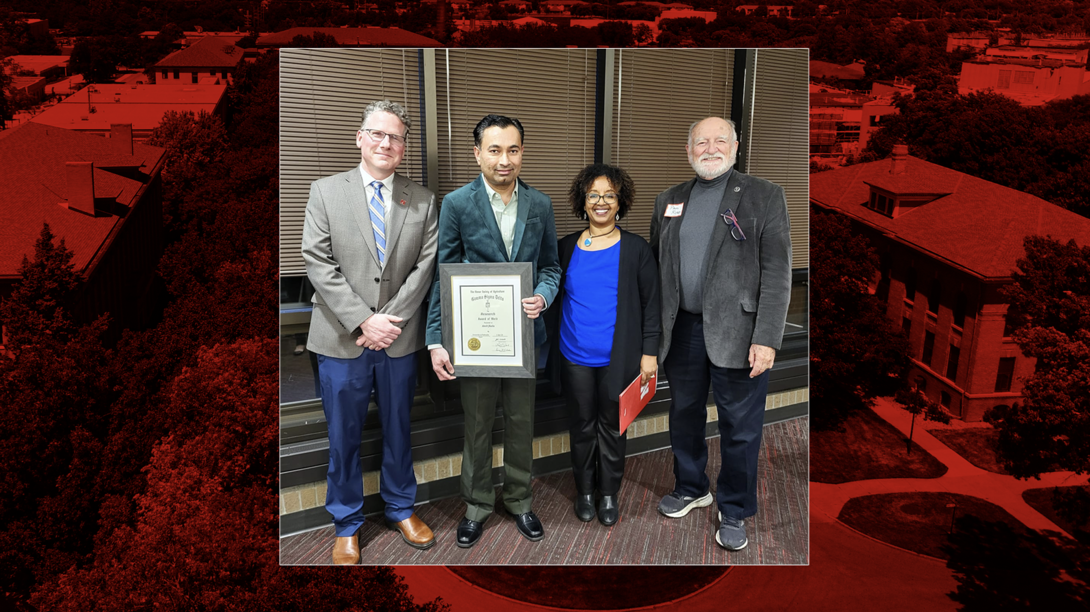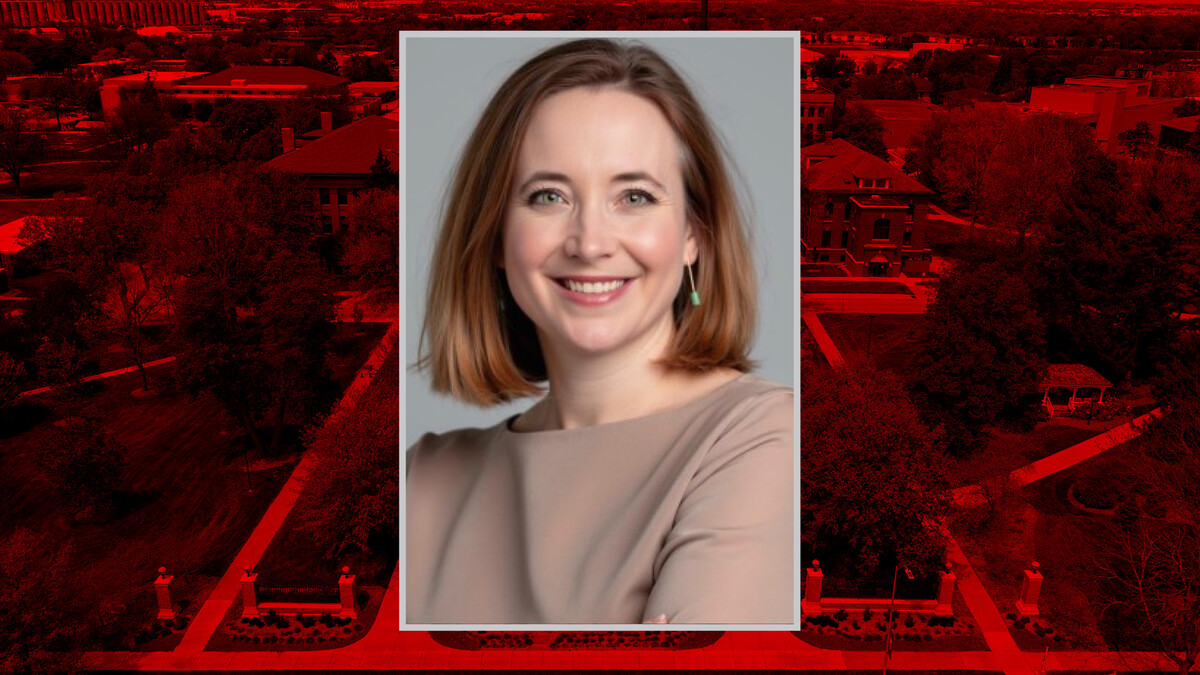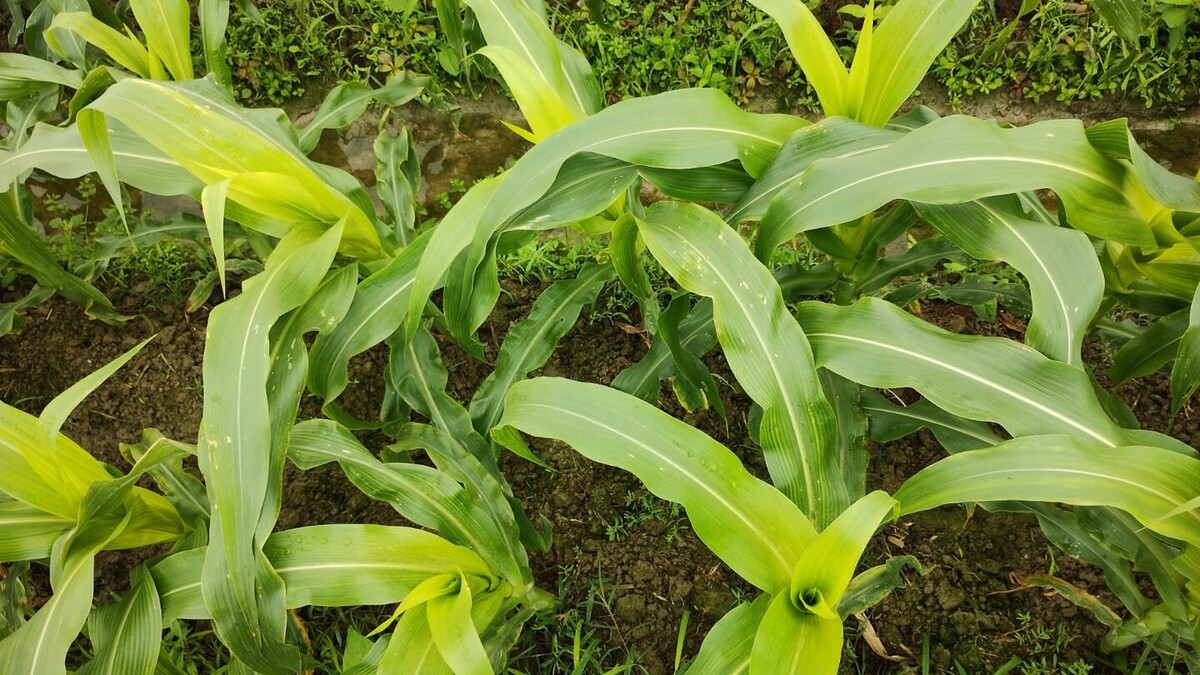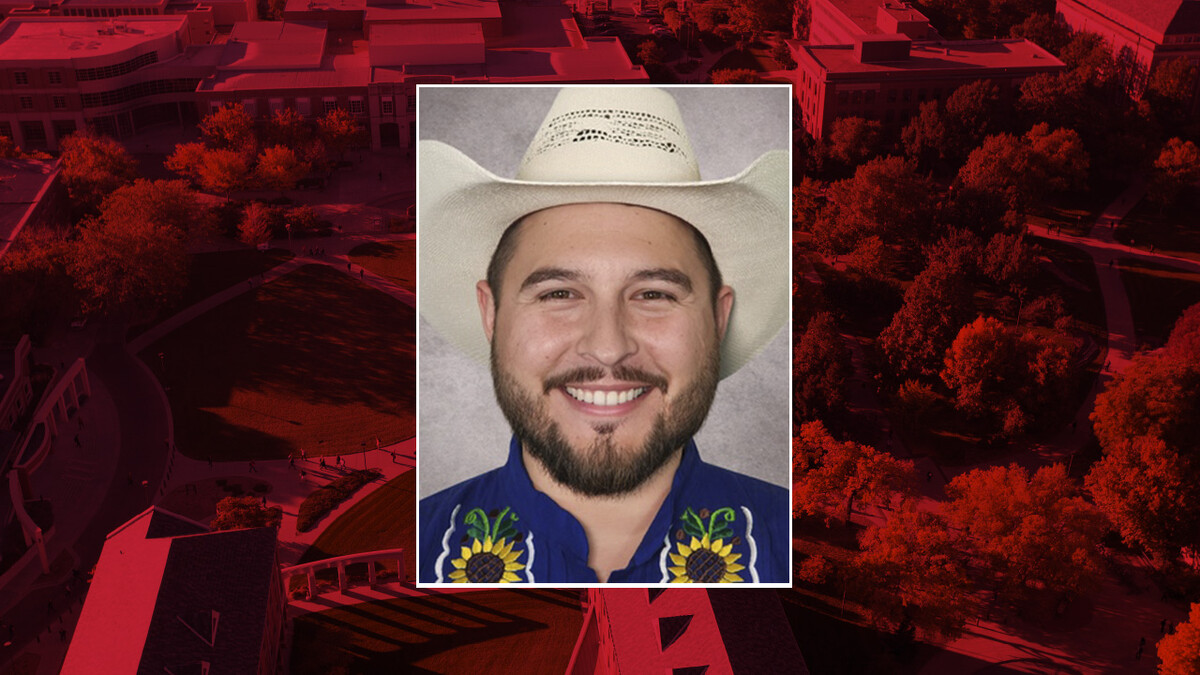
Lincoln, Neb. —Amit Jhala was honored with Merit in Research Award by Gamma Sigma Delta−An Honor Society of Agriculture during the annual reception of Nebraska Chapter in Lincoln, Nebraska, April 1, 2024. Jhala is a Professor, Associate Department Head, and Nebraska Extension Weed Management Specialist in the Department of Agronomy and Horticulture at the University of Nebraska–Lincoln.
Jhala completed his bachelor’s degree in agriculture from Gujarat Agricultural University in 2000 and his master’s in weed science from Anand Agricultural University in 2003. In 2009, he completed his doctoral degree in plant science/weed science from the University of Alberta, Canada.
Jhala began his career in weed science research and extension at the University of California, Davis and the University of Florida working on weed management in fruit crops, and citrus orchards.
In 2012, Jhala came to Nebraska as an Assistant Professor and Extension Weed Management Specialist with 50% research and 50% extension appointment. In 2018 he was promoted to Associate Professor with tenure, and in 2023 promoted to Professor. He obtained $8.1 million in his program with $3.5 million as a principal investigator.
He is known world-wide for his research on pollen-mediated gene flow from herbicide resistant crops and weeds. His research focuses on weed biology, pollen-mediated gene flow, and management of herbicide-resistant weeds and crop volunteers. He has been invited by Weed Science Society of America to write synthesis review papers on these topics of his expertise.
“Amit has developed an outstanding weed science research and extension program. He successfully translates research projects into extension programs and address real world problems faced by growers in Nebraska and beyond,” said Robert (Bob) Klein, emeritus professor and Nebraska Extension crops specialist at West Central Research Extension and Education Center in North Platte.
Jhala is committed to mentoring students, graduating eight master’s and five doctoral students so far at the UNL.
Jhala has published papers in high impact journals such as Nature Scientific Reports, The Plant Journal, Crop Science, Heredity, Weed Science, Pest Management Science, Weed Technology. Publication credits include 12 book chapters and 155 papers published in peer-reviewed journals, and 165 Extension articles.
He has received numerous prestigious awards including Weed Science Society of America (WSSA) Outstanding Early Career Weed Scientist Award, WSSA Outstanding Reviewer Award, North Central Weed Science Society (NCWSS) Distinguished Achievement Outstanding Young Weed Scientist Award, American Society of Agricultural and Biological Engineers Superior Paper Award, Canadian Journal of Plant Science Outstanding Associate Editor Award, Gamma Sigma Delta Award of Merit in Extension, Nebraska Cooperative Extension Association Award of Excellence in Individual Extension Program, and Epsilon Sigma Phi Outstanding Early Career Extension Leadership Award.
GAMMA SIGMA DELTA is a faculty governed society that selects its members from junior and senior students, graduate students, faculty, and alumni for the promotion and recognition of high achievement. While Gamma Sigma Delta is an honor society of agriculture, it may elect members from related fields such as biology, botany, chemistry, economics, entomology, family and consumer sciences, forestry, natural resources, plant pathology, sociology, statistics, veterinary medicine, or zoology when the work of the individual is related to agriculture. Officers, committee chairpersons, and others leading the chapter are faculty or alumni.
More information about Jhala's research and extension program is available at https://agronomy.unl.edu/jhala and https://agronomy.unl.edu/jhalalab.







